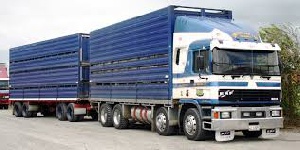The Ghana Haulage Transport Owners Association (GHATOA) has expressed strong opposition to the planned implementation of the new axle load policy and is urging the government not to go-ahead with the decision.
It threatened that its members would be forced to withdraw their services should its call be ignored.
Mr. Salia Adams, the General- Secretary of GHATOA, said at a news conference held at Afrancho in the Afigya-Kwabre District that the new policy carried the twin-danger of pushing them out of business and denying the nation revenue.
He said their counterparts from neighbouring landlocked nations, who are using the country’s ports, had started looking elsewhere because of poor axle-load handling.
The new policy, expected to take effect from February 01, pegs allowable axle load limit for a six-axle truck at 60 tonnes as against the permissible limit of 68 tonnes under the Economic Community of West Africa States (ECOWAS) protocol.
Mr. Adams said the protocol was designed to harmonize allowable axle-load limit for all countries in the sub-region.
He complained that high fuel prices and vehicle parts combined with increased taxes and road tolls had put severe strain on their operations.
He said the Association said it found it disheartening that the representations about the potential problems and dangers with the news policy it made to the Roads and Highways Ministry were disregarded.
The General-Secretary said it was ironical that a government that was trying to develop and expand infrastructure at the ports to increase the volume goods passing through there should at the same time be pushing aggressively to cripple businesses.
He said it was difficult to understand why patrol tankers should be allowed to carry load in excess of about 80 tonnes but trucks continued to be haunted.
Mr. Adams said it was neither in the interest of members of the Association to destroy the roads nor be asking for unacceptable loading practices without any form of regulatory checks.
He said they just wanted to see that things were done such that businesses would flourish to bring optimal benefit to the economy.
Click to view details



Business News of Saturday, 18 January 2014
Source: GNA

















